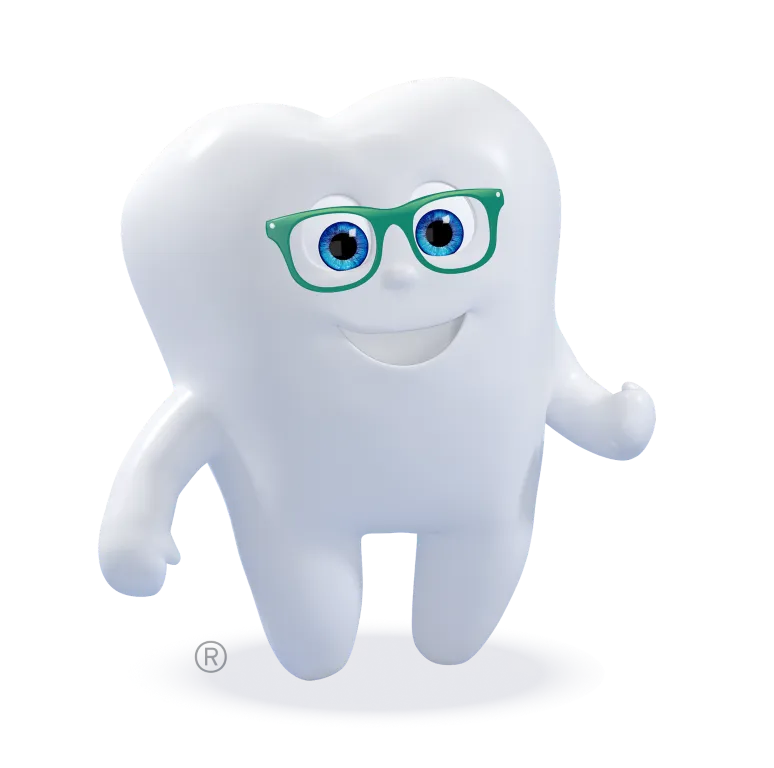Physicians Mutual Insurance Company®
- Dental Care Help Center
- What is preventive dental care?
What is preventive dental care?
Preventive dental care means actively caring for your teeth through brushing, flossing and regular checkups. The goal is to identify and fix small problems before they become big, and potentially costly, issues.
What can a preventive care exam reveal?
Gum disease
Gum (or periodontal) disease is one of the biggest threats to dental health, and 75% of Americans 65 and older have some form of it.1 However, it’s often painless and can have subtle or no warning signs, meaning you could have it and not even know it.
That makes those semi-annual trips to the dentist vitally important. Brushing and flossing can help keep gum disease at bay, but only identification by a dentist can truly address a potentially dangerous but easily treatable disease.
Gum disease often starts as gingivitis. A few symptoms to look for include gums that bleed during and after brushing, persistent bad breath or bad taste in the mouth, or red or swollen gums. But remember, treating gingivitis right away can prevent it from causing harm to your teeth and gums.2
some form of gum disease.1
The need for replacement fillings
Adults who had cavities filled as children likely have some metal fillings in their mouths. Metal fillings have been the standard for dentists for more than a century due to their durability, but they can wear out or become damaged. By making regular trips to the dentist, you’re ensuring your fillings are receiving regular evaluation for weaknesses.3 The earlier any such problems are detected, the easier they are to fix.
Oral cancer
The American Cancer Society estimates more than 54,000 people will be diagnosed with oral cancer this year.4 Early detection is the key to minimizing your risk. If you need motivation to keep making regular visits later in life, know you’ll be getting a cancer screening each time you settle into the dentist’s chair.
Be sure to tell your dentist if you have any problems chewing, swallowing, speaking, or moving your tongue or jaw, as they can be side effects of oral cancer.
Overall health problems
Research shows there are connections between your oral health and your overall health.5 For example, people with periodontal disease are about twice as likely to have a heart attack;6 they are also at a greater risk for pneumonia. In addition, people with arthritis are eight times more likely to have gum disease.1
Diabetes and gum disease are also closely connected. Having diabetes increases the risk for infection in your body, which can lead to gum disease. At the same time, having gum disease increases the amount of inflammation in your body, making it harder to keep your blood sugar under control.5
How does preventive care help save me money?
Cost is a major factor with any sort of dental procedure and is often the reason many people avoid going to the dentist. A routine checkup could cost between $75-$200, depending on where you live.7 But even at twice a year, that’s significantly less expensive than a crown, root canal or set of dentures, which can start at around $900.8
That’s why preventive care and tackling small problems before they grow bigger is doubly important. It not only keeps you healthy, it saves money.
Another option to help with expensive dental bills is dental insurance. Many dental procedures — such as preventive, basic and major — are covered under dental insurance policies that are relatively inexpensive.
Important reminders about your dental health
- Gum disease can be painless and have no warning signs.
- Metal fillings can wear out or become damaged.
- Oral cancer screenings can be part of routine dental exams.
- People with arthritis are eight times more likely to have gum disease.
- The cost of twice-yearly dental exams is significantly less expensive than a crown, root canal or set of dentures.
Sources:
- “Gum Disease Risk Factors,” American Academy of Periodontology, perio.org, accessed July 14, 2025
- “Gingivitis Treatment: How to Treat Gingivitis at Home,” crest.com, accessed July 14, 2025
- “How Long Do Fillings Last Before Needing Another?,” verywellhealth.com, January 10, 2025
- “Key Statistics for Oral Cavity and Oropharyngeal Cancers,” American Cancer Society, cancer.org, January 16, 2025
- “Oral health: A Window to Your Overall Health,” Mayoclinic.org, updated March 14, 2024
- “Gum Disease and Heart Health: Probing the Link,” Harvard Health Publishing, health.harvard.edu, updated January 17, 2025
- “Teeth Cleaning Cost,” Cost Helper Health, health.costhelper.com, accessed July 14, 2025
- “Root Canal Cost,” Cost Helper Health, health.costhelper.com, accessed July 14, 2025
Preventive care can help save your teeth, but did you know it can help save you thousands?
Stop paying out of pocket for the care that prevents bigger problems. Discover dental coverage that pays 100% for preventive coverage in network — with no deductibles.





